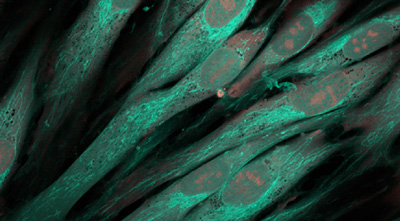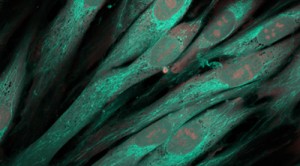Merck announces findings from Keytruda combination studies
Posted: 23 November 2015 |
The findings come from three studies investigating the use of Keytruda (pembrolizumab) in combination with three other immunotherapies – epacadostat, Imlygic (talimogene laherparepvec), and ipilimumab – in patients with advanced melanoma…


Merck has announced findings from three studies investigating the use of Keytruda (pembrolizumab), the company’s anti-PD-1 therapy, in combination with three other treatments in patients with advanced melanoma.


KEYNOTE-037 Study (Keytruda with epacadostat)
KEYNOTE-037 is an ongoing Phase 1/2 study of Keytruda in combination with Incyte’s epacadostat (INCB024360) – an investigational selective IDO1 inhibitor – in patients with advanced cancers. Early data from this trial showed that in 19 patients with advanced melanoma, the combination demonstrated an overall response rate (ORR) of 53%, including three complete responses (CRs) and seven partial responses (PRs). The disease control rate (DCR) was 74%.
Based on these findings, Merck says a Phase 3 trial is planned.
MASTERKEY-265 Study (Keytruda with Imlygic)
MASTERKEY-265 is an ongoing Phase 1b study evaluating the safety, efficacy, and tolerability of Keytruda in combination with Amgen’s Imlygic (talimogene laherparepvec) – a herpes simplex virus-1 (HSV-1)-based oncolytic immunotherapy – in patients with previously untreated, unresected advanced melanoma.
Results showed that the combination resulted in an unconfirmed ORR of 56.3%, including two CRs and seven PRs. The DCR was 68.8%.
Based on these findings, Merck and Amgen are planning a Phase 3 trial.
KEYNOTE-029 Study (Keytruda with ipilimumab)
KEYNOTE-029 is an ongoing Phase 1/2 study evaluating the safety, efficacy, and tolerability of Keytruda in combination with low-dose ipilimumab (Yervoy) in patients with advanced melanoma to investigate whether lower doses of ipilimumab improve the tolerability of the combination regimen. Early findings in 72 evaluable patients with advanced melanoma showed that the combination demonstrated an ORR of 56%, including three CRs and 37 PRs. The DCR was 79%.
Commenting on the findings from the different studies, Dr Roger Dansey, senior vice president and therapeutics area head, oncology late-stage development, Merck Research Laboraties, said, “We have demonstrated the benefit of Keytruda as a single agent in advanced/metastatic melanoma and we are now also looking to identify potential combinations for patients with this devastating disease. The combination data presented at SMR, including Keytruda combined with epacadostat or Imlygic, may further our goal of improving outcomes without substantial increased toxicity.”



